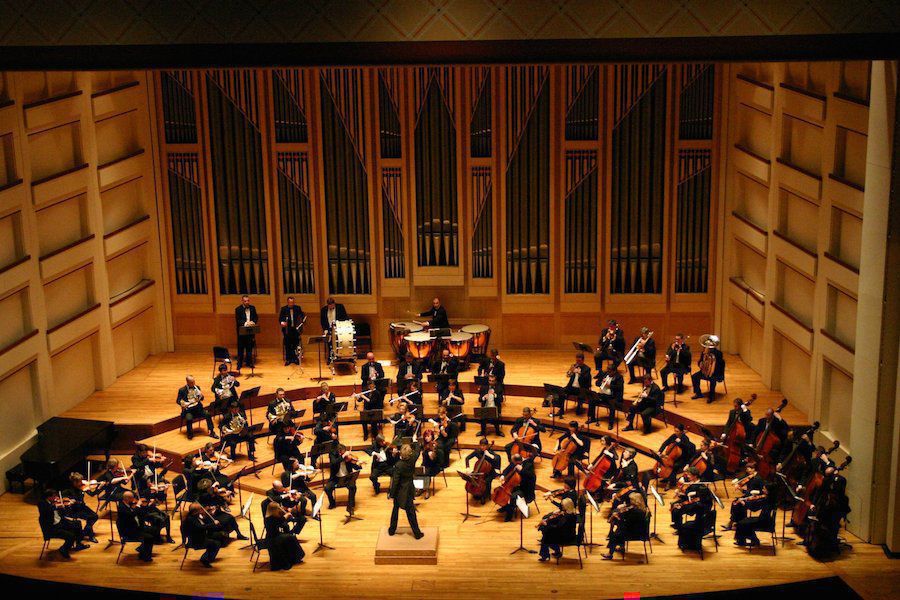Are you ever too old to learn a language?
As a small child, I was practically a real-life Harry Potter. Without the magic. Or the mean Aunt and Uncle. Okay, well really, the only similarity is that I spent a lot of my days in the cupboard under the stairs. Now, before you call the authorities, don’t worry. It was my favourite place! I had a comfy chair and my own TV and all the VHS tapes of awful 90s cartoons that a toddler could ever ask for!
 Why is this relevant to EuroTalk I hear you ask?! Well, it was here, sat watching Tots TV, that I accidentally taught myself French! My parents had no idea, until one day I casually said to my Mum ‘Bonjour, Je m’appelle Codie! That means “Hello, my name is Codie”, Mummy!’. She was in shock. After all, what would you think if your three year old daughter started spouting French? Once I’d explained that I got it from Tilly (sorry to anyone born too early/late to understand the references here, YouTube it!), I was inundated with French books, tapes and excited relatives. Even the nurse at our local GP practice heard about my weird knowledge and insisted on making me count to ten in French whilst she gave me my injections. I was essentially a performing monkey – but I loved it!
Why is this relevant to EuroTalk I hear you ask?! Well, it was here, sat watching Tots TV, that I accidentally taught myself French! My parents had no idea, until one day I casually said to my Mum ‘Bonjour, Je m’appelle Codie! That means “Hello, my name is Codie”, Mummy!’. She was in shock. After all, what would you think if your three year old daughter started spouting French? Once I’d explained that I got it from Tilly (sorry to anyone born too early/late to understand the references here, YouTube it!), I was inundated with French books, tapes and excited relatives. Even the nurse at our local GP practice heard about my weird knowledge and insisted on making me count to ten in French whilst she gave me my injections. I was essentially a performing monkey – but I loved it!
Fast-forward a few years later and I’m in the second half of Primary School. We have a super cool substitute teacher who plays guitar and teaches us German. It takes him less than half an hour to teach an entire class of children to count to ten in German and 15 or so years later I still know it.
Fast-forward a few years even later and my adorable four year old nephew is counting to ten in Japanese! Something they learn at pre-school through the use of cute mnemonic devices (with even cuter actions!). Languages are being taught younger and younger and suddenly, my toddler French seems a whole lot less impressive.
 So that leads me to wonder, am I too old to learn a language? I’m led to believe that the older you are, the harder it is to learn an instrument (well, at least I can sort of play the recorder, right?), so does this apply for other skills? I can’t do a cartwheel, so I figure that boat has sailed, but I did recently learn how to knit… badly. Do different things have different cut off points? As knitting is usually for old ladies, was I only able to learn it because I’m cracking on a bit now? (Maybe a slight exaggeration, I am only 23 after all.) Most importantly am I the right age to finally start learning a language? As I’m currently childless, I know it’s my biological clock I should be worried about, but I genuinely think it is being drowned out by the voice in my head that is yelling ‘What happened to the girl who was learning French before she could tie her shoes? What are you doing with your life?!’.
So that leads me to wonder, am I too old to learn a language? I’m led to believe that the older you are, the harder it is to learn an instrument (well, at least I can sort of play the recorder, right?), so does this apply for other skills? I can’t do a cartwheel, so I figure that boat has sailed, but I did recently learn how to knit… badly. Do different things have different cut off points? As knitting is usually for old ladies, was I only able to learn it because I’m cracking on a bit now? (Maybe a slight exaggeration, I am only 23 after all.) Most importantly am I the right age to finally start learning a language? As I’m currently childless, I know it’s my biological clock I should be worried about, but I genuinely think it is being drowned out by the voice in my head that is yelling ‘What happened to the girl who was learning French before she could tie her shoes? What are you doing with your life?!’.
And that, my friends, is the existential crisis that has inspired me to try and learn Japanese, with the help of EuroTalk. Maybe I’ll shut myself in the cupboard under the stairs for old times’ sake!
Codiekinz is a twenty-something blogger from the South, currently masquerading as a Northerner. She makes YouTube videos and posts about life, books, travel and her bearded dragon, over at www.codiekinz.co.uk. She’ll also be using uTalk to learn Japanese, so keep an eye on her blog for updates!
You can also follow her on Twitter @CodieKinz
Photo credit: codiekinz.co.uk
3 surprising facts about the relationship between language and music
It’s often said that music is the “universal language of mankind”. Indeed, like language, music has great expressive power, and manages to convey a vast array of sentiments and emotions, even without the use of words. But just how connected are language and music? Research suggests that the relationship between the two may be even stronger than it appears at first glance. Let’s take a look at some of the surprising ways in which language and music are connected.

You’re not likely to confuse Beethoven’s Fifth for Lincoln’s second Inaugural Address, but music and language have more in common than you might think. Image via Derek Gleeson / Wikipedia
1. They share the same basic building blocks
Even on a very basic level, music and language are similar in that both are compositional. This means they are made of small parts that combine to create something larger and more meaningful; in other words, their whole is greater than the sum of their parts.
For example, languages consist of individual words that combine in meaningful ways to create sentences. In isolation, the words “I”, “you”, and “love” don’t mean much — but when combined into a sentence, “I love you”, suddenly they carry great importance.
Similarly, music — at its most basic level — consists of individual notes. Like words, these aren’t particularly meaningful by themselves: hearing an E flat in isolation likely won’t stir up any serious emotions. But when you combine the E flat with a C and a G, you have a C minor chord: something meaningful has been formed.
2. They involve the same areas of the brain
For decades, scientists have isolated specific brain regions that are responsible for the comprehension and production of language. One of the more notable regions is Broca’s area, which is located in the left-hemisphere frontal lobe and plays a crucial role in language comprehension and production. Specifically, Broca’s area seems to be responsible for our ability to use syntax —the structural rules that languages have so that sentences make sense.
Recent studies have also found that Broca’s area is crucial in the comprehension and analysis of music. Indeed, brain scans have found increased neural activity in Broca’s area when subjects heard and interpreted both speech and music. Further, research shows that, compared to non-musicians, musicians have a greater volume of grey matter in Broca’s area, suggesting that Broca’s area may be responsible for both speech and music.
3. Musical training can improve language skills

Image via Montserrat Labiaga Ferrer / flickr
In 2011, developmental psychologists from Justus-Liebig University in Germany conducted a study to examine the relationship between the development of music skills and language skills. To do this, they separated pre-schoolers into two groups, one of which received daily music lessons at school.
Later, they measured the pre-schoolers’ phonological awareness, which refers to their general ability to use and manipulate language. For example, children with good phonological awareness can recognize when words rhyme, can successfully identify individual sounds within words, and can blend together individual sounds to create words. Early phonological awareness has been shown to be a predictor of enhanced reading skills later in life.
The study found that the children who received daily music lessons ended up with higher levels of phonological awareness than those who did not. This suggests that the development of music skills and language skills go hand in hand, which makes sense if music and language are served by the same underlying brain areas.
As you can see, there are more parallels between language and music than meet the eye! On both a descriptive and neural level, language and music have a lot in common. As language learners, you can take advantage of this relationship by incorporating foreign-language music into your daily language-learning routine. In addition to providing you with great music to listen to, you’ll be exercising the same part of your brain that’s responsible for language skills.
Do you listen to music in your target language? What are some of your favorite foreign-language songs? Let us know — leave a comment!
Paul writes on behalf of Language Trainers, a language tutoring service that offers German classes in Dublin, as well as courses for other languages all throughout the world. You can check out their free foreign-language level tests and other language-learning resources on their website. Visit their Facebook page or contact paul@languagetrainers.com if you have any questions or if you’d like more information.
Are translation apps really the answer for travellers?
The first thing you need to do before embarking on a trip to a foreign land is to start learning the language. This will not only impress the locals, but will also make your visit easier and more enjoyable. In this hectic era, however, you may be forgiven for not dedicating the time necessary for learning a new language. In such instances, one might rely on a translation app to help fill in the gaps in your knowledge. But are these apps really an alternative to learning the language?
Of course you will continue to learn a lot while you are abroad. Simply engaging in conversation and navigating the signs and menus will put your skills to the test and improve them in the process. You can use any spare time to enhance your language learning with apps like uTalk. It’s a handy way to learn 111 languages while you’re on the move.
 If you are really stuck though, and haven’t managed to learn anything but a few basic phrases, then you may turn to a different kind of app. iOS, Android and Windows Phone all offer some great apps for translating speech in real time. It’s the sort of technology that was previously associated with science fiction, but now you can download it for free. The Google Translate app is one of the most popular real-time speech translation apps for Android and iOS, and it works in 50 languages. Skype also launched a real time translation option recently, and although it is probably the most advanced in terms of technology, it’s only available in two languages at present. Technology like this will inevitably change the way we think about global travel.
If you are really stuck though, and haven’t managed to learn anything but a few basic phrases, then you may turn to a different kind of app. iOS, Android and Windows Phone all offer some great apps for translating speech in real time. It’s the sort of technology that was previously associated with science fiction, but now you can download it for free. The Google Translate app is one of the most popular real-time speech translation apps for Android and iOS, and it works in 50 languages. Skype also launched a real time translation option recently, and although it is probably the most advanced in terms of technology, it’s only available in two languages at present. Technology like this will inevitably change the way we think about global travel.
I have tested many of these apps and have found that they can be a godsend when you are searching for that one elusive word to help you get your point across. You can also try to convince a bewildered local to speak into the phone in the hopes that the voice recognition software and the translation software work well enough to produce a coherent sentence. Unfortunately such apps are still a long way from perfect, as factors such as regional dialects and background noise can seriously impact the quality of the translations.
There are also practical problems posed by using a translation app in a restaurant or train station. You shouldn’t be surprised to hear irritated grunts of derision from locals, especially if there is a queue behind you. That’s why far from being a substitute for language learning, these apps are at best a means to supplement a traveller’s existing language skills.
At first such groundbreaking technology seems as though it holds the revolutionary potential to knock down language barriers and make language learning redundant. But although the level of technology available now is far beyond what it was a decade ago, there’s still plenty of room for improvement. It takes a human mind to understand the nuances of language and intended meaning. These apps might be great for ordering food on holiday, but you can’t use them to have meaningful conversations or to translate literature. The day such apps finally make language learning redundant will be the same day that translation technology replaces professional translation services.
Author biog: Tom Rowsell is a writer and language enthusiast from East London. His fascination with language began while studying Old English literature at University.
3 great TV shows for learning Spanish
After two years of barely pulling an ‘A’ in my Spanish class, I decided to start studying more. I had a really bad problem when it came to listening to Spanish. Mostly because I couldn’t understand the language. So over the summer I watched a couple of Spanish TV shows, and found them very interesting and extremely beneficial when it came to understanding the language. Being able to watch a TV show in a foreign language is a great feeling, so I urge people to learn the vocabulary. Following this list means that you can start enjoying this amazing gift.
As a forenote, I learned Spanish so I am using Spanish examples; however I will add my favorite genres for learning, in order of importance. If you would like to find a language, Google search ‘watch television shows free’ or ‘popular television shows in X’. This has to be done in the target language of course. Now without further ado…
1. ¿Dónde está Elisa? (or just Dramas)
Dramas. The characters use a TON of expressive body language. This is my best choice when it comes to learning how to hear a language. You won’t sit there completely bored as you practise, and also because it’s a television series, people are always talking and you can use previous context.
2. La Fuga (Action series)
Technically, this show isn’t an action series. It’s another drama, but it’s set in the future of a prison. People die and there’s fighting in it, so I think it should be action. Anyways, once you can start to understand what’s happening in your drama series, then I recommend exploring different dramas. For me it was action, because I love thrillers and suspense.
The main benefit of switching genres is your entertainment. There are so many different genres, it shouldn’t be hard to find something that you like. You’ll have fun watching it, learn a couple of phrases, and become one step closer to having conversations with natives.
3. Aquí no hay quien viva (Comedies)
Comedies should absolutely be saved for last on your list of genres to watch. The body language can be deceiving and it is very difficult to understand what is happening. On the up side, once you understand words, it can be very pleasing to watch. I love Aquí no hay because a ton of episodes are free on YouTube, and also it makes me laugh. It reminds me of watching Seinfeld, but it’s in Spanish.
—
This is the order I used to increase my language abilities. I highly recommend that you watch TV in your target language at some point. It’s a great accomplishment to understand what they are saying; however I should warn you because watching too much television can hinder your progress. Speaking is ultimately the best practice, but it is good to take a break and watch some television from time to time.
Do you watch TV as part of your language learning? Please share your recommendations in the comments.
Ray Jones
Read more from Ray on his blog at themodernlingo.com.
—
Want to join the EuroTalk blogging team? We’re always keen to hear from language enthusiasts with something to share. Email liz@eurotalk.com for details.
The importance of Body Language when learning a new language
Today we’re happy to welcome back Izabella Klein, who spent some time with us last year while she was translating the onebillion maths apps into Brazilian Portuguese. Izabella’s new post focuses on a language we all speak, even if we don’t realise it…
Starting next year I will go back to teaching English as a second language. In the meantime I am recalling all the grammar points, reminding myself what to do in a classroom, as well as emphasising the key points when learning a new language. During this process, I thought of myself as a linguist constantly studying new languages: either technical languages or a new language spoken elsewhere in the world.
This moment of reflection and remembrance made me realise in a more mature way how body language is not only important in daily conversation, but it is the ‘real universal language’, since it is the only language that in fact everyone in the world can use. So, it becomes really important when learning/teaching a new language. I would say it is the first key to follow into teaching any new language.
 For instance, how do we recognise body language? Probably when we realise when someone is sad or happy, thrilled or devastated just by their faces and body movements. So body language is when we can interpret without a word being said – only by our eyes observing someone using body language. Old black and white movies are great examples when we notice how they used much more body language than movies nowadays. No sound, no words, all they had were scenarios, costumes and body language to make people laugh or cry.
For instance, how do we recognise body language? Probably when we realise when someone is sad or happy, thrilled or devastated just by their faces and body movements. So body language is when we can interpret without a word being said – only by our eyes observing someone using body language. Old black and white movies are great examples when we notice how they used much more body language than movies nowadays. No sound, no words, all they had were scenarios, costumes and body language to make people laugh or cry.
Now think of an international film festival you’ve been to, or just any foreign movie you’ve watched one day, in a language you either don’t speak at all or at which you are still basic or intermediate level. If you got tired of reading the subtitles, or you’re a language geek like me, always trying to understand what people say even if it’s an unknown language, you had to go with ‘trying to figure it out’ by listening to the sound of the words said by the characters and observing the body language they were using while saying it.
So don’t go taking any conclusion in advance, thinking you will not be able to understand anything at all, just because you don’t speak the language. Relax and watch the movie, observe what the characters do. I bet you will understand more than you imagine and you will learn even if only a little bit of that language.
Meeting foreign people in person and socialising with them is also a great opportunity of observing and learning a new language and culture. We have such opportunities when we travel abroad, have a foreign friend coming over, when we chat with a friend via Skype or similar, or when we have a language teacher.
But if you don’t have those at the moment but you still want to learn, multimedias are really efficient not only for entertainment, but for education purposes as well. We are able to observe images, while we listen and even read. We use both our eyes and our ears; these senses, at the same time connected and alert, increase learning possibilities. And we see not only scenarios and costumes that help identify cultural aspects. We also see body language as a key to trying to figure out what is being said or even really understand what is being said, together with words that might sound familiar due to having the same linguistic routes as another language you already learnt.
Did you ever have a language teacher trying to introduce some new vocabulary in class, acting like a drama teacher, using a lot of mimes and weird sounds trying to make you understand the meaning of the new words? She was not just acting CRAZY, she was trying to make you learn like babies do, by observing. So, pay attention to body language, it will definitely help you learn other languages. As for me, I will probably take drama classes to help me improve my body language skills in class…
Izabella Klein

